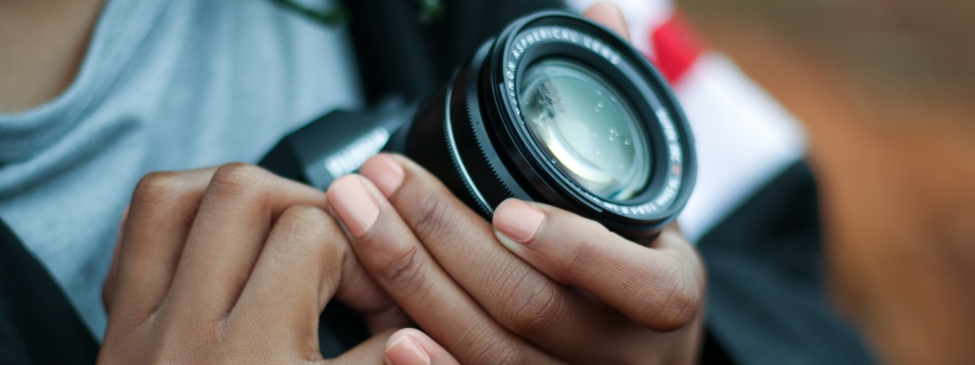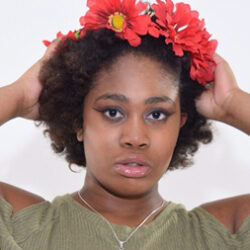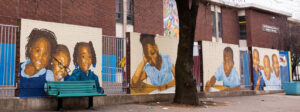Discussions about public education are filled with opinions, from politicians, advocates, educators, and parents. We have a lot of different ideas, but we generally have one thing in common—we're adults. All too often, there’s a crucial voice missing from these conversations: students, the people schools exist to serve. What do they want from their schools? What do they want for themselves and their lives? And when’s the last time people who wield the power in education asked them those questions?
[subscribe]
Last year, we talked to students in five extraordinary classrooms across the country, all of whom had big dreams for themselves. This year, we’ll be talking to even more. Culminating with our next major research study, we’ll be working to put the voices of more students front and center in the education conversation, and to help leaders and policymakers learn from what they have to say.
As a start, we’re launching a new series of blog posts today that will feature the voices of K-12 students. These kids—from district, charter, and magnet schools, from Oregon to Texas to Louisiana to New York—have sky-high aspirations and clear suggestions for how the grown-ups in their lives can help them realize those dreams.
Kayla, 10th-Grade Student:
I go to an online charter school that provides different academics for different types of students. They also have a special center for performing arts. Even though I’m in 10th grade and the program is open to pretty much everyone at the school except kindergartners, this November I’m applying to the arts program for the first time. It’s the first time I’ve had a good reason—I want to push my photography because it helps calm me down, I guess you could say. Even though I’ve liked snapping photos on my phone for a few years, I really became interested in photography on a school trip to Europe I went on when I was in ninth grade.
To be honest, I went because my mother made me. When they sent the note home saying we had the option to travel, she said, “It's a once in a lifetime trip. Just go.” And I was like, “But you did not see this price? This money don’t add up right. Plus eating and all.” But she just said, “You're going.”
I had so many new experiences on that trip. First off, even though my travel group was pretty big, everyone in it was white. Also, walking around London, I barely saw any black people. Probably because we were on the upper-class side of town. I think if we’d gone to a different part of town we would’ve seen more black people. But that experience taught me that being creative and being the only black person there—there’s nothing wrong with that. Most of the time, people accept you for who you are. I also learned that sometimes people won’t accept you—and it’s okay to be offended when someone, like, bumps you on the shoulder or steps on your foot, and then looks at you—stares at you—with so much hatred. It’s okay to get offended and get mad—and then move on.
Another thing that was new to me—something life-changing, actually—was seeing so many people with cameras. As we traveled from country to country, I became and more interested in photography and travel, and began to think about what it would be like to be a photojournalist.
By the time I got back to Philly, I had my plan. I asked my grandmother if I could borrow the old SLR that I’d seen laying around her hair salon, and of course, she said yes. One of the first things I filmed was a music video for my cousin. It's a rap video about him talking about Philly, the city we both grew up in. It’s a pretty catchy song, but it’s also meaningful and powerful. I'm excited for him because after we made the video, he started taking his music more seriously.
My life goal is to open up a center for people who can’t afford to get academic and creative educations. In the center, in addition to making art, I want to have people who deal with a lot to go ahead and talk to someone and be very open. I want everyone there to trust each other so that people who are dealing with the same challenges can support each other. I believe that everyone deserves either a second chance—or more than a second chance.
[related]
So, after high school, I want to go to college for photography, psychology, and business. Business might sound strange, but I want to have the organizational skills to actually run the center. My grandma owns her salon, and I see how organized she is and how important business skills are to her work. Since I’m a person who doesn’t like to be late, it irks me to the core that I’m horrible at scheduling. I will be 30 minutes, or an hour early before I’ll be late—and you will get a whole paragraph apology on why I'm late, because I'm corny like that. But I know I can do better. So, this school year I’m really focusing on balancing everything—photography, school work, and I may even start track again if I can get better at managing my time.
The last thing I want to happen before I graduate high school might not sound related, but it is. I have different teachers every year; they’re pretty cool, and they’re patient with me, and I appreciate that. But I’d like them to stop being so shocked that a black girl can be so educated. I’ve never had a brown skin teacher—I’ve never even seen a brown skin teacher—and I really hope to have one before I graduate. I think it would make a big difference. I feel like I’m always pressuring myself and trying to please my teachers just to help them feel better about having a smart black girl in their class—I hate it; it wastes my time and gives me a headache. It would be really cool not to have to worry about that so I can spend more time focusing on what really matters to me: using art to help people live the best lives they can.
Read more about students' experiences in school in The Opportunity Myth—then take the first step by requesting your own free action guide featuring tools and advice to help more students in your community have worthwhile experiences in school.




